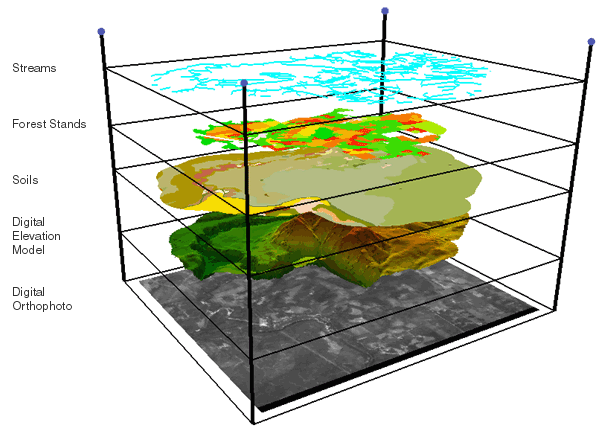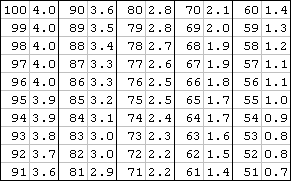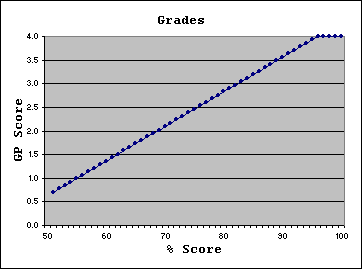Introduction to Geographic Information Systems in Forest Resources
| Introduction to Geographic Information Systems in Forest Resources |
|
|||||||||||||||
|
|||||||||||||||

ESRM 250 introduces the technical use of geographic information systems (GIS) in natural resource management and earth sciences. The course is directed at giving students an understanding of, and experience with, the practical use of GIS software, hardware, and data. Lab exercises and course projects will use real-world datasets.
Upon completion of the course, students will have a general understanding of GIS data structures (vector and raster), operations and analysis, and data output (maps, tables, measurements, statistics).
Because GIS is both a tool not only for analysis, but also communication, students will be required to prepare graphical and written materials, much as would be expected in a professional setting.
While a substantial amount of time will be spent on theoretical aspects of GIS, theory will be covered only as it applies to the understanding and support of practical knowledge. As a practical course, ESRM 250 will focus strongly on software use, lab exercises, and very little on readings. However, it must be stressed that complete and solid GIS skills cannot be obtained without the thorough understanding of theoretical aspects of GIS, which are beyond the scope of this course. For a better course on GIS theory, consider GEOG 460. For a better course on cartographic principles and symbolization, consider GEOG 360.
Instructor:
Instructor: Josh Lawler
E-mail: jlawler@u.washington.edu
WWW: http://faculty.washington.edu/jlawler/
Office Hours: By appointmentInstructor: Peter Schiess
E-mail: schiess@u.washington.edu
WWW: http://faculty.washington.edu/schiess/
Teaching Assistant:
TA: Mu-Ning Wang
E-mail: wang0209@u.washington.edu
Office hours are posted at the Contact Us page.
Required Media (no textbooks are required)
- A compact disc containing course data (hereafter referred to as "CD"). For this you will need to purchase one blank recordable CD.
Please read the copyright statement before using any of the non-published materials.- ArcGIS Desktop 10.1 Student Version (distributed in class).
- A removable drive (either a "pen drive" or a removable hard drive, at least 1 GB in size).
- Course Web Pages (hereafter referred to as "WWW").
Recommended Readings
- Maribeth Price. “Mastering ArcGIS, 5th Ed, 2011”. McGraw Hill
- Ormsby, Tim, Eileen Napoleon, Robert Burke, Carolyn Groessl, and Laura Bowden. 2010. Getting to Know ArcGIS Desktop, Second Edition, Updated for ArcGIS 10. ESRI Press. To get the best price, order directly from Amazon.com or ESRI.
- A general introductory GIS textbook, of which there are a number, such as: Chrisman, Nicholas. 1997. Exploring Geographic Information Systems. New York: John Wiley & Sons. 320 p. ISBN: 0471314250.
- Edward R. Tufte, 2001. The Visual Display Of Quantitative Information
By the end of the first week of classes, students will be expected to:
- Have an account on one of the UW mail computers (dante, homer, etc.). If you do not have an account, you should get one as soon as possible, following directions at UW NetID for Students.
- Know how to read and write e-mail messages.
- Know how to save a document in Adobe PDF format.
- Know how to use a Web browser, including file downloading and saving to particular directories.
- Know how to zip and unzip files with zip, WinZip or PKZip.
- Have basic familiarity with a word processor and spreadsheet application.
- Be comfortable with the Windows XP operating system, most importantly, hierarchical file structures and the Windows Explorer.
- Be able to capture images from the monitor and paste these images into another document.
- Have a basic working knowledge of algebra, trigonometry, and coordinate geometry.
- Have a basic familiarity with maps and map reading.
Most of these can be considered "basic" computing skills, and will be expected of you throughout the quarter. However, these skills will also help in any future courses you take or jobs you get that require computing.
If you do not meet these criteria, you may have a difficult time keeping up with the material and the pace of the course. Basic computing skills classes are available from UW Computing and Communications.
Student Conduct
The course is structured around paired lecture/discussion and lab sessions. The first few lecture sessions will cover the foundations of GIS technology. Subsequent lectures will consist of either guest lectures or demonstration of assignment/exam answers.
Topics introduced in discussion sessions will be explored in greater depth and applied to real data during lab sessions. Semi-weekly lab exercises will be augmented with weekly assignments.
Academic Honesty
Grades will be based on participating in guest lectures, periodic assignments and a mid term. There are a total of 8 assignments due, about one each week during this quarter. Weekly assignments are posted on the course schedule, to be completed and uploaded to the Catalyst DropBox site on the due date.
Again, grades are based on the 8 required assignments plus the mid term. The fomula is below.
Final Grade = (Sum of points from all 8 assignments (800))/8
Written assignments and examinations shall be typed and double-spaced, and saved in Adobe PDF format. PDF files are to be submitted using Catalyst. If you do not know how to create PDF files or use Catalyst, see the instructions.
Graduate students taking credit for SEFS 520 will need to complete a poster in addition to the other requirements (see the SEFS 520 page for details).
If you are auditing, taking Pass/Fail, Credit/No Credit, Satisfactory/Not Satisfactory, it is your responsibility to be aware of University policies regarding passing scores. If you are a graduate student, make sure you know what your minimum passing score is. If you fall below the minimum score, you may not pass the course. If you do not achieve a passing score, grades will NOT be altered after they have been submitted.
The due dates/times for assignments are based on the University of Washington computer system clock, which is synchronized with the worldwide time system. Late assignments will NOT be accepted in any way, shape, or form, even if your assignment is only 1 minute late. It is unfair to those who get their work done and submitted on time if we accept late work. Don't even think of using lame excuses such as "my internet connection failed," "I was using a friend's computer," "my system clock is not the same as the UW clock."
Cumulative grades will be posted as soon as assignments are graded.
Grades will be assigned according to University of Washington grading policy. Percent scores will be transformed to point scores according to a linear regression of the interval (0.7, 4.0) on the interval (51%, 96%), where the minimum passing score is 0.7 (51%), and 96% or above is a 4.0, listed in the following matrix:


The University of Washington is committed to providing access, equal opportunity and reasonable accommodation in its services, programs, activities, education and employment for individuals with disabilities. For information or to request disability accommodation contact: Disabled Student Services (Seattle campus) at (206) 543-8924/V, (206) 543-8925/TTY, (206) 616-8379 (FAX), or e-mail at uwdss@u.washington.edu. If you have a letter from the Disability Services Office indicating you have a disability that requires academic accommodations, please present the letter to the instructor for discussion of the accommodations you might need for the class.
|
|||||||||||||||

|
The University of Washington Spatial Technology, GIS, and Remote Sensing Page is supported by the School of Forest & Environmental Sciences |
School of Forest & Environmental Sciences |